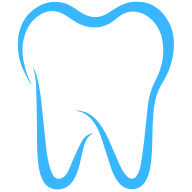7 Common Misconceptions About Dental Care Debunked
When it comes to dental care, there are numerous misconceptions that can lead to poor oral hygiene and health issues. This article addresses seven common myths about dental care, starting with the surprising fact that pain-free teeth can still have issues and concluding with the importance of professional cleanings reaching areas that are otherwise inaccessible. Each insight provides valuable information based on real experiences in the field of dentistry. By understanding these truths, readers can take better care of their dental health and avoid common pitfalls.
- Pain-Free Teeth Can Still Have Issues
- Regular Checkups Catch Problems Early
- Primary Teeth Affect Permanent Teeth Development
- Gum Health Impacts Overall Well-Being
- Diet Influences Oral Hygiene Significantly
- Manage Tooth Sensitivity for Daily Comfort
- Professional Cleanings Reach Inaccessible Areas
Pain-Free Teeth Can Still Have Issues
One misconception about dental care is that if your teeth don't hurt, then there's nothing wrong. Believe it or not, you can have issues like cavities, gum disease, and even the beginnings of oral cancer without feeling any pain. Often, by the time your mouth starts hurting, you might be looking at treatments that are not only more complex, but also more expensive.
As a dental expert, I cannot stress enough the importance of regular check-ups. These aren't just scheduled visits; they are your first line of defense. When you come in, I get the chance to closely inspect your teeth and gums, and catch any problems while they're still minor. This proactive technique is all about nipping potential oral health issues in the bud before they escalate into something major.
Taking care of your dental health is important, even if you're not experiencing any discomfort. After all, preventing disease not only keeps your smile in great shape but saves you from undergoing more intensive procedures down the line. So, let's keep your oral health on track together!

Regular Checkups Catch Problems Early
A common misconception I often encounter is that "you only need to visit the dentist when something hurts." Many people assume that if they don't feel any pain, their teeth and gums are fine. However, as an experienced dentist, I can tell you that pain is often a late-stage symptom of dental problems. Issues like tooth decay or gum disease can develop quietly, without causing any immediate discomfort, and by the time pain sets in, the problem may already be advanced.
In reality, regular checkups are essential to catching dental issues early. Preventive care, such as cleanings and exams, helps to detect problems before they become serious. Many dental conditions, such as cavities or periodontal disease, can be treated more easily—and at a lower cost—if caught early. Waiting until something hurts often leads to more complicated treatments like root canals or extractions, which could have been avoided with timely care.
The truth is, dental health is about maintenance and prevention. Regular visits help maintain oral hygiene, catch problems early, and ultimately save time, money, and discomfort in the long run. It's not just about fixing pain; it's about preventing it altogether.

Primary Teeth Affect Permanent Teeth Development
Neglecting primary teeth impacts permanent teeth development. The health of baby teeth is vital because they act as placeholders for permanent teeth. If primary teeth are damaged or lost too early, it can lead to alignment and spacing issues. This can affect how permanent teeth grow in, potentially causing the need for braces or other dental corrections.
Caring for baby teeth properly helps set the stage for a healthier mouth as children grow. Thus, maintaining the health of primary teeth is essential for long-term dental health. Make sure to prioritize regular dental check-ups and proper oral hygiene for young children.
Gum Health Impacts Overall Well-Being
Gum health directly correlates to overall well-being. Poor gum health has been linked to several serious health conditions, including heart disease and diabetes. Inflammation and infection in the gums can potentially spread to other parts of the body, posing health risks beyond the mouth. Keeping gums healthy through good oral hygiene and regular dental visits is crucial for overall health.
It's essential to pay attention to any signs of gum disease, like bleeding or swelling. Prioritize your gum health to support your overall well-being. Schedule a gum health checkup with your dentist today.
Diet Influences Oral Hygiene Significantly
Diet significantly influences oral hygiene beyond brushing. What we eat has a profound impact on our oral health, not just in terms of cavities but also in overall mouth condition. Foods high in sugar and acids can lead to tooth decay and erode enamel, while crunchy fruits and vegetables can help clean teeth surfaces and stimulate saliva production.
Saliva is essential because it neutralizes acids and washes away food particles. Therefore, a balanced diet rich in vitamins and minerals supports both oral and general health. Be mindful of how your food choices affect your mouth and opt for healthier options.
Manage Tooth Sensitivity for Daily Comfort
Sensitivity can be managed, not just endured. Tooth sensitivity often arises from exposed dentin or receding gums, causing sharp pain with hot or cold intake. However, there are treatments available, such as desensitizing toothpaste that formulates protective barriers over sensitive areas.
Dental professionals can also offer in-office treatments for severe cases. Managing tooth sensitivity improves daily comfort and overall quality of life. Don't just live with the pain; seek solutions from your dentist for a more comfortable experience.
Professional Cleanings Reach Inaccessible Areas
Professional cleanings reach areas inaccessible at home. While brushing and flossing are essential daily habits, they cannot completely remove all plaque and tartar buildup. Dental hygienists have special tools that can clean hard-to-reach areas around and below the gum line.
Regular professional cleanings prevent gum disease and other oral health issues by removing what home care leaves behind. This deep cleaning also helps maintain a bright, healthy smile. Make it a routine to visit your dentist for cleanings to ensure comprehensive oral health.

